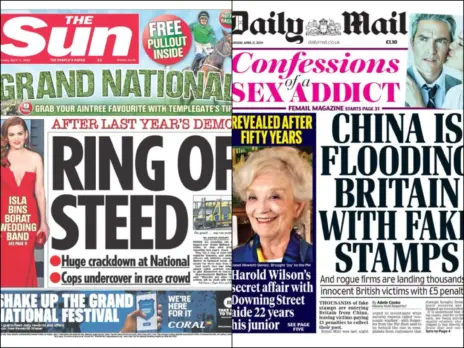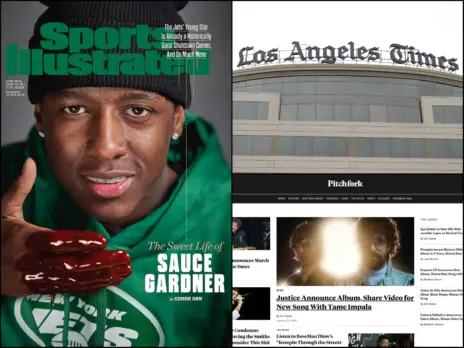The Sun's royal editor has told jurors he stands by "every single one" of the stories about the Duke of Cambridge and Prince Harry that allegedly came from tips from a Sandhurst instructor.
Duncan Larcombe (pictured, Reuters) is on trial over his dealings with then Colour Sergeant John Hardy who was allegedly paid more than £23,700 for providing information on the princes and others on 34 occasions.
However, in his defence, Larcombe, 39, said he still believed he had done nothing wrong after poring over his work since his arrest three years ago.
The father-of-two from Kent was asked by his counsel, Richard Kovalevsky QC, for his view of the allegations against him.
He replied from the witness box in Court 16 of the Old Bailey: "In my own view, I don't think I have done anything wrong and I still have to be convinced why I'm sitting here."
He told jurors the charge related to 24 stories out of more than 2,000 he had written during the course of his career at The Sun newspaper.
Kovalevsky asked if he could "take any of them back" or whether he considered they were in the public interest.
Larcombe replied: "As you can imagine, I have probably spent quite a long time looking through those stories in the last three years and I would stand by every single one. There's not one I would change."
The court heard Larcombe began his journalism career at a local newspaper after completing a politics degree and being rejected for a job in Devon and Cornwall police force.
He said: "I was a cub reporter on the Kent and Sussex Courier in Tunbridge Wells from 1997. I started on a Monday and the following weekend Princess Diana was killed so that happened in my first month as a reporter."
Recalling the impact Diana's death had on him a young reporter, he said: "I had only been there a week but I was sent to Tonbridge station after Princess Diana's funeral had taken place to do what they call a vox pop, trying to get a Tonbridge angle, and the reaction of the public was really horrible.
"Just holding a notebook felt horrible. I'm not saying they accused me of killing her, but it felt like they were."
He told the court that one consequence of Princess Diana's death on the media was the publication of a new Press Complaints Commission code.
During his time at the Courier, Larcombe was drilled on subjects including ethics, law and 100 words per minute shorthand as part of his training for an NVQ qualification in journalism, which was equivalent to a degree.
He said: "I spent the first two-and-a-half years of my career when I was not writing about morris dancers at local pubs and other important local stories like that, learning about what you couldn't put in a newspaper, ethics, PCC code…
"Everything I wrote went to a senior reporter who would lean over my shoulder and tell me all the mistakes I made. We also had copy clinics every week. The newspaper was extremely good at training."
But during that time, Larcombe said the issues around public officers at the centre of the charges against him were never raised and were not included in the journalist's "bible" – McNae's Essential Law for Journalists.
He told jurors: "I actually got up to the attic and got down my old files for my NVQ. I got through McNae's and I have not found a single reference, not one, a single one, of a public official or anything about the legality or otherwise of paying for stories. It's simply not there."
He went on: "A local paper was particularly sensitive about making a mistake because you are serving the local community so if you upset the local mayor he knows where your office is and he will come and find you."
It was also important when he moved on to The Sun, he said: "Just because you are sat in the Wapping office of The Sun and writing about someone in west Wales, they are still people and you have a responsibility to be accurate."
Larcombe is charged with aiding, abetting, counselling and procuring former Colour Sergeant Hardy in the offence of misconduct in a public office between 9 February 2006 and 16 October 2008.
The pair are in the dock alongside Claire Hardy who is charged with aiding and abetting Hardy.
The Sun chief reporter John Kay, executive editor Fergus Shanahan and deputy editor Geoffrey Webster, are charged with conspiring with each other and Ministry of Defence official Bettina Jordan-Barber to commit misconduct in a public office between 1 January 2004, and 31 January 2012.
Webster also faces a second count of conspiracy to commit misconduct with a serving officer in the armed forces between 3 November and 6 November 2010.
Kay, 71, of Golders Green, north London, Larcombe, 39, of Aylesford, Kent, Webster, 55, of Goudhurst, Kent, Shanahan, 59, of Felsted, Essex, and John Hardy, 44, and Claire Hardy, 41, of Accrington, Lancashire, deny the charges against them.
Email pged@pressgazette.co.uk to point out mistakes, provide story tips or send in a letter for publication on our "Letters Page" blog







